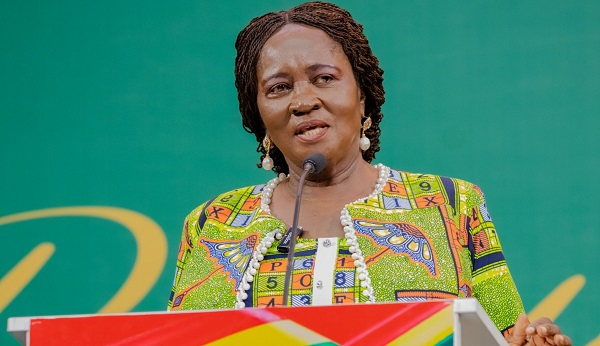Article content Recent election campaigns have featured the summary dismissal of nominated candidates, usually because some untoward social media post or previously unknown interview from the past surfaced. Or was surfaced by rivals. Newly embarrassing candidates can be dropped within the hour.
The combination of undemocratic powers reposed in party leaders and the immediacy of digital communication provides an interesting electioneering sideshow. Who’s out today? This past week, six candidates were dropped — four Conservatives and two Liberals. The BBC’s Yes, Prime Minister had the hapless PM fretting over losing a second minister from his cabinet.

Sir Humphrey, the cabinet secretary, quoted, after a fashion, Oscar Wilde: “To lose one minister may be regarded as a misfortune; to lose two looks like carelessness.” The leader of the opposition lost four in one week, which is likely some sort of record. Even though Pierre Poilievre was playing whack-a-mole, the focus was rightly on Liberal Leader Mark Carney, who lost his candidate in the Toronto-area riding of Markham-Unionville, incumbent MP Paul Chiang, in a perplexing episode .
Carney defended Chiang on Monday morning, only to accept his resignation Monday night. During the day the National Post had reported that the RCMP was looking into Chiang. It was no mere sideshow, but touched upon Chiang’s disposition toward the significant issue of foreign interference in our elections.
In January, talking to Chinese-language media, Chiang spoke about Joe Tay, who was seeking the Conservative nomination to challenge Chiang, but who is now the Tory candidate in the Toronto riding of Don Valley North. Tay emigrated from Hong Kong to Canada, and had operated a YouTube channel criticizing Beijing’s human rights abuses in his homeland. Tay was then charged under China’s totalitarian security law, which criminalizes basic democratic liberties.
The Chinese government has a HK$1-million bounty (C$184,000) on Tay. Chiang noted that if someone wanted to deliver Tay to the Chinese consulate in Toronto, they could collect the cash. When the comments came to light, Chiang apologized personally to Tay and declared his regret to all and sundry — to the public, to Carney, to the nation, and perhaps even to President Xi Jinping.
Given the new normal for expendable backbenchers, everyone expected Chiang to be kicked to the curb. Inexplicably, on Monday morning, Carney stood by him, saying, “He has my confidence.” That confidence wilted in the subsequent hours.
The episode demonstrated an uncomfortable truth. Canada’s business elite has been soft on Chinese tyranny for generations. Carney comes from that world.
That does confer a certain valuable expertise and experience, and he has criticized Poilievre for being a career politician, who was first elected an MP in 2004 at age 25. Regarding China though, a career in populist politics is an advantage. Prime ministers Pierre Trudeau, Brian Mulroney, Jean Chrétien, Paul Martin and Justin Trudeau all pursued a soft-on-China policy , acting as reliable advocates for the Chinese business interests of the Desmarais family of Montreal.
After the Tiananmen Square massacre of 1989, three Canadian prime ministers, Trudeau père, Mulroney and Chrétien, exerted themselves to help the Chinese communists wash the blood off their hands. China was grateful. Recall that the Chinese regime, acting through reimbursed surrogates, made a million-dollar donation to the Trudeau foundation.
The donors proposed erecting a statue of the elder Trudeau and Mao in Montreal. With policy proposals converging of late, especially in regard to President Donald Trump’s tariffs, the election has become more focused on the leaders. The contrasting resumés of Carney and Poilievre are so notable that the latter has taken to saying that “a resumé is not a plan.
” Regarding China though, Poilievre’s resumé may well be an advantage. One reason that Stephen Harper’s premiership took a more clear-eyed view of Chinese tyranny was that he, like Poilievre after him, spent most of his adult life in politics and political advocacy. Neither were from the business class of Canada, the Montreal wing of which operated on the conviction that what was good for the Desmarais family in China was good for Canadians at home.
Populism can provide a check on the corporate consensus, especially in a country like Canada, where there are only a few big players in banking, transport, groceries and telecommunications. Political leaders move in such circles, meet their leaders, receive their advice. That can be to the good, but also dangerous if it excludes other views.
Carney’s mistake regarding Chiang has been explained by many as that of a novice leader. Perhaps. But he is a man of long experience in more than one field, and the world whence he came has proven accommodating on China.
That worldview has shaped the Liberal party for nearly 60 years and, during the Mulroney years, the Conservatives, too. Harper and Poilievre don’t come from that world. A resumé is not a policy, but on China, their resumés are an advantage.
National Post.
Politics

Raymond J. de Souza: Playing the new election game of 'who's out today?'

Mark Carney's treatment of disgraced MP Paul Chiang a reflection of Liberals' historic coziness with China















